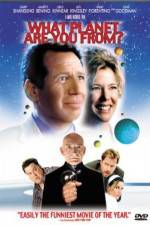Crater of Death 123movies Full Movie Stream
Watch Crater of Death

- BBC Horizon In 1979, evidence was first uncovered of the impact that wiped out the dinosaurs and seven-tenths of all life on Earth. It took years of detective work to uncover the clues that led to the 200km wide crater. It is the product of one of the biggest explosions on Earth since the emergence of life. From scientific investigation of the crater itself, the story of this mass extinction is now revealed. Sixty-five million years ago, the age of the dinosaurs ended, along with seven-tenths of all life on Earth. Today, the evidence is clear that a comet struck the Earth with a force hundreds of times greater than the combined nuclear arsenals of the world at the height of the Cold War. This was the killer and Ground Zero is the fishing village of Chicxulub in Mexico. This film lays out what has been proved in the 20 years since the first appearance of evidence that an extraterrestrial impact was responsible for the death of the dinosaurs. Through CGI animation, the film gives an idea of how precisely such an explosion could have wiped out so much life on the planet. It took hundreds, perhaps thousands, of years for the climatic effects of the impact to be shaken off. However, the dinosaurs might have survived the blast but for one piece of very bad luck: the relatively rare rocks that formed much of the seabed (now part of the Yucatan peninsula in Mexico) vaporised by the comet. There is also some evidence that the comet followed the plot of a Hollywood disaster movie on steroids: it may have been a very, very bad day for North America. The KT mass extinction and the crater in the Yucatan Peninsula of Mexico are at the centre of a vast web of research and dispute from many different branches of science: geophysics, astronomy, palaeontology, planetary science, geochemistry and remote sensing. Whilst researching this film, it became clear that the impact has been not just on the dinosaurs themselves but also on some dinosaurs of science. The discovery of a thin iridium-rich rock (the first evidence of an impact) has forced palaeontologists to look in much greater detail at the fossil record. Eighteen years ago, they widely rejected, even scorned, the idea that an impact could have caused the mass extinction; they said that the fossil record simply did not show it. What they now find is that plants and animals on land and sea were waxing and waning before the impact, then, at the impact horizon, the vast majority disappear. Considering the consequences of the impact, this is hardly surprising. The evolution of life in the ten million years spanning the impact's effects is now revealed at a much greater resolution than the rest of the fuzzy fossil record. It makes you wonder what else will be revealed if it is ever again subjected to such detailed investigation.












